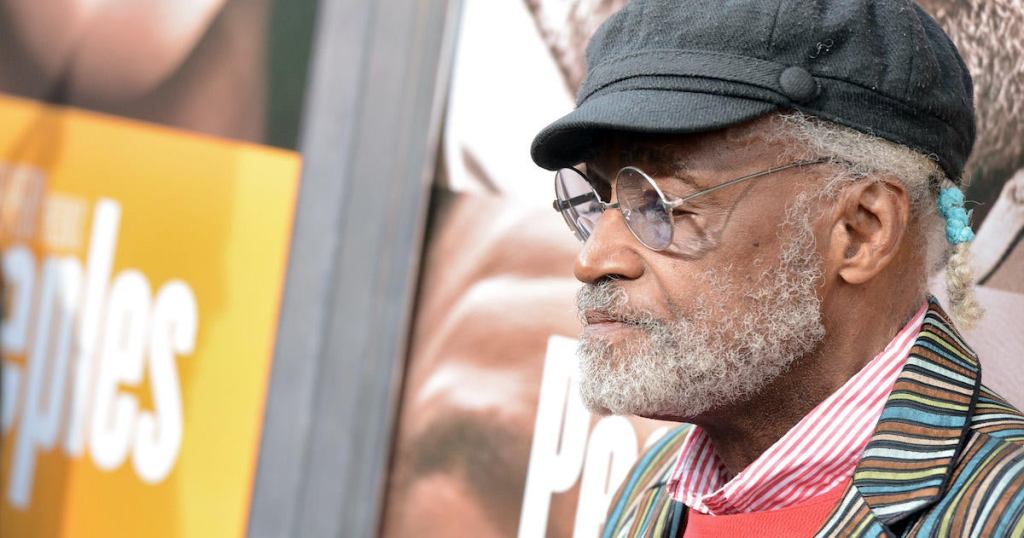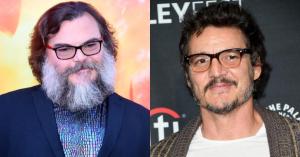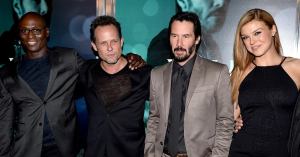Mario Van Peebles, the son of historic filmmaker Melvin Van Peebles, honored his late father at the New York Film Festival with a 4K screening of his notable film Sweet Sweetback’s Baadasssss Song. At the now-outdoor event in Damrosch Park, the Panther director opened the screening with a touching tribute to his father.
“This film was made at a time when you didn’t really see Black people onscreen with facial hair, let alone some of the crazy s–– my dad does in this movie,” he said, per Indie Wire. “White folks saw the peace and freedom movement reflected a little bit from films like Easy Rider, but we didn’t have that,” Mario said. “So he makes Sweetback and puts Black power on the screen for the first time. Audiences at first didn’t know what the heck it was.”
Videos by PopCulture.com
Melvin Van Peebles died on Sept. 22 in his Manhattan home. He was 89 years old. The film community mourned the loss of the Black cinema giant on social media, sharing parts of his legacy that impacted them and their craft. Van Peebles played the movie’s titular character, an orphan who was raised in a brothel that grows up to take on racism in Los Angeles with the teaching he learned as a child. The movie was selected to join the Library of Congress’ National Film Registry last year.
“You saw a lot of flicks with us being the servant class,” Mario said of the era when Sweetback was made in 1971. “The world is changing and the way we’re reflected onscreen has been colored, or as I call it, the ‘mo’ tea suh?’ tribe… This was a film about a sex worker who goes from a ‘we’ mentality to a ‘me’ mentality.” Mario continued: “On Watermelon Man, the film crew was basically all white men. He was very firm that he wanted the film crew that looked like America.”
Mario added that he went to his father often for advice. “When I was about to have kids, I asked my dad a bunch of questions. I had a list of s––, all the stuff I wanted to ask him about,” he said. “I asked him if he’d do this film the same way. He said, ‘Yes, son, I had to have WOM factor.’ WOM was ‘word of mouth.’ The movie had to be outrageous enough that with no budget he could get it out there. Whether you loved this movie or hated it, you would talk about it.”





